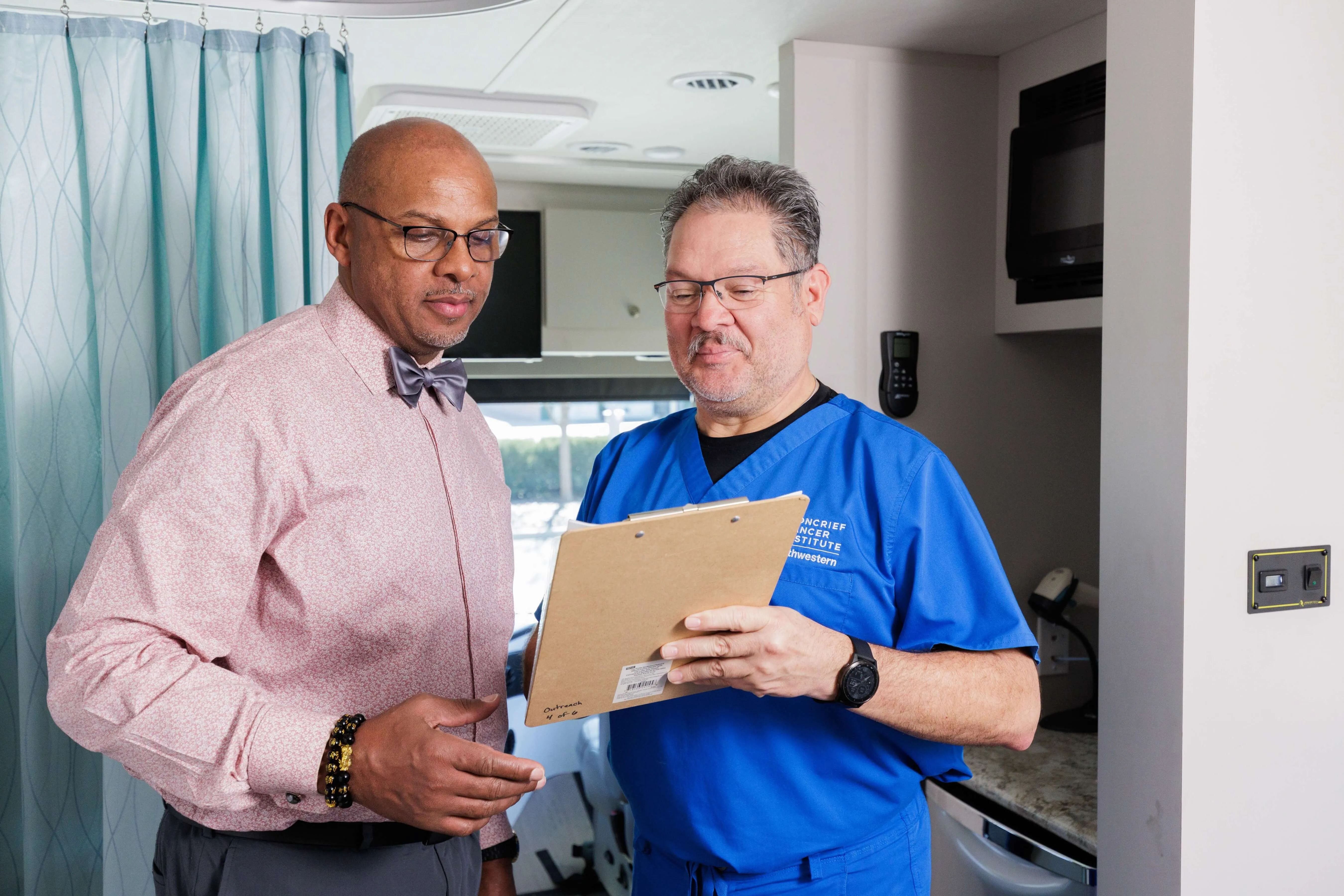Early Detection Is Our Best Chance Against Cancer
It’s the reason we created the Mobile Screening Clinic, a traveling clinic that brings cancer screenings to companies across North Texas.

Preventive Care, Anywhere
Our Mobile Screening Clinic brings a unique, convenient care experience to your company. In just a few simple steps, you can book a screening event.

We’re Here to Help
From coordinating the event to promoting it, we work closely with your team to simplify the entire experience.

Who Should Screen
Men who are within the following screening guidelines should be screened for prostate cancer.
- Men ages 50 to 69 who are generally healthy (average risk)
- Men ages 45 to 69 who are African American (high risk)
- Men ages 40 to 69 with a parent, sibling, or child who has been diagnosed with prostate cancer (very high risk)
Why Screen
- About 1 in 8 men will be diagnosed with prostate cancer during their lifetime.
- After skin cancer, prostate cancer is the most common cancer among men.
- Each man’s risk of prostate cancer can vary based on his age, race/ethnicity, family history, and diet.

There’s Always a Reason to Make Preventive Care Part of Your Wellness Program
There are no signs of early prostate cancer.
There are no signs of early prostate cancer, which is why screening is so important. By getting screened, you can detect it early, when treatment is more likely to be successful.
Prostate cancer has a high cure rate when it’s caught early.
Screening for prostate cancer can help detect cancer early, before it spreads. According to the American Cancer Society, when prostate cancer is detected while it’s contained to the prostate or nearby lymph nodes, the five-year survival rate is 99%.
A blood test can save a life.
Moncrief uses a PSA blood test to screen for prostate cancer. The test measures how much prostate- specific antigen (PSA) is in your blood. PSA is a protein made by the prostate gland. If the PSA is elevated, it could be an early sign of prostate cancer.

